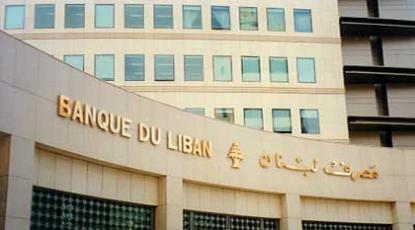 Lebanon’s debt-to-GDP ratio could balloon to 180 per cent by 2023 if the government does not undertake reforms to narrow its fiscal deficit, which may reach 10 per cent of GDP amid the current geopolitical tensions, the IMF said.
Lebanon’s debt-to-GDP ratio could balloon to 180 per cent by 2023 if the government does not undertake reforms to narrow its fiscal deficit, which may reach 10 per cent of GDP amid the current geopolitical tensions, the IMF said.
Lebanon needs to start implementing reforms that address its funding needs and tackle its debt, currently at 150 per cent of GDP, which is exacerbated by political uncertainty, internal disagreements and the burden of hosting about 1 million Syrian refugees, which represent about a quarter of the population. Prime Minister Saad Al Hariri’s sudden resignation in November, which he rescinded later, plunged the country into political uncertainty.
“The funding environment has been affected by the political crisis of November 2017,” the Washington-based lender said in its article IV consultation report. “Without a significant reduction in the economy’s funding needs or an increase in deposit inflows (and given the global interest rate outlook), the Banque du Liban (central bank of Lebanon) will need to increase interest rates or use its sizable gross reserves to meet the funding needs of the economy.”
The country was able to escape the impact of the global financial crisis in 2008 because the central bank banned Lebanese banks from investing in subprime products. As interest rates globally on deposits plunged, Lebanese banks were able to attract inflows from the Lebanese diaspora, at an average of about $1bn a month, with interest rates as high as 7 to 8 per cent on the deposits in the lira or pound. However, rates have come down markedly since.
“In the past, foreign-deposit inflows have been a key source of financing for the large current account- and budget deficits. However, deposit growth has eased in recent years. Private sector deposit growth was 3.8 per cent in 2017—below the average growth in previous years,” the IMF said.
Lebanon’s economy is hurting from Syria’s seven-year war, which has curtailed an important trade and business route, and led to the influx of refugees. The country’s heavy debt burden is also a concern for investors, who are not as eager as before to invest in a country struggling to control its finances.
Lebanon plans to call on donors to provide funding to the country during the upcoming Paris conference, which is slated to take place in April.
The authorities intend to raise up to $16 billion or 32 per cent of GDP over the next 10 years through the World Bank’s Concessional Financing Facility, public-private partnerships and other facilities, the IMF said.
In January Mr Al Hariri ordered government agencies to cut 2018 budgets by 20 per cent, as part of the state’s plans to rationalise spending, excluding wages to public servants.
“The size of adjustment needed to halt the rise in public debt is still within reach, but it would require significant efforts, and would not by itself guarantee sustainability,” said the IMF. “A combination of increases in revenues and cuts in current spending amounting to about 5 per cent of GDP is needed over the medium term to stabilise public debt as a share of GDP and place it on a gradually declining path.”
The IMF, which also is projecting the current account deficit to remain at 20 per cent of GDP if no reforms are enacted, forecasts between 1 and 1.5 per cent growth for 2017 and 2018 as the three contributors to GDP – tourism, real estate and constriction – remain weak. It estimates that the fiscal deficit reached 7.3 per cent of GDP in 2017.
“Goods exports as a share of GDP continue to decline, while imports remain strong, in part due to cheap credit made available by several BdL subsidy schemes and higher oil prices,” the IMF said.
The government raised taxes and fees last year to fund salary pay increases for public sector employees, measures that further hurt the private sector.
Lebanon’s private sector business conditions continued to deteriorate in January, but at the slowest pace for nine months, according to the Blom Lebanon PMI, a key gauge of the health of the economy.
THE NATIONAL

Leave a Reply
You must be logged in to post a comment.